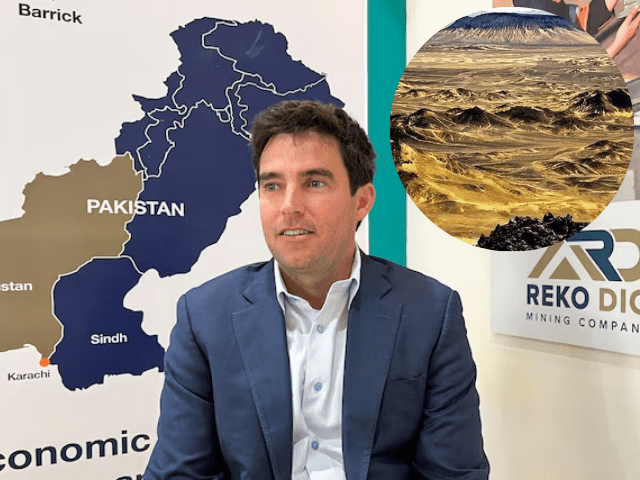Barrick Gold is looking to obtain more than $ 2 billion in financing for its Reko Diq Copper and Gold project in Pakistan, and the term sheets are expected to be completed at the beginning of the third quarter of 2025, according to the project director.
The financing will support the development of Reko DIQ, one of the largest non -developed copper gold deposits worldwide, which is expected to generate $ 70 billion in free cash flow and $ 90 billion in operating cash flow.
Reko DIQ is a joint business between Barrick Gold, the governments of Pakistan and Baluchistan.
Financing of phase one of the project, estimated to begin production in 2028, is currently being negotiated with multiple international lenders.
Tim Cribb, director of the Barrick Gold project for Reko DIQ, revealed in an interview at the Pakistan 2025 minerals forum that the mine is looking for $ 650 million in financing of the International Finance Corporation (IFC) and the International Development Association (IDA).
In addition, the project is in conversations with the US Export Bank to finance $ 500 million to $ 1 billion, as well as to obtain $ 500 million from several financial development institutions, including the Asian Development Bank, Exports Development Canada and the Bank of Japan for international cooperation.
“We hope to close the term sheet in the second late trimester or beginning of the third quarter,” said Cribb.
The Reko DIQ project has recently seen an update in reach. Phase one will increase to 45 million tons per year (MTPA) of 40 MTPA, and the performance of phase two will increase to 90 MTPA of 80 MTPA.
Consequently, the life of the mine has been adjusted from 42 years to 37 years, although Barrick believes that additional non -accounted for life can extend life up to 80 years. The cost of phase one has also increased to $ 5.6 billion of $ 4 billion.
Cribb also mentioned that rail financing conversations are progressing, with estimated infrastructure costs between $ 500 million and $ 800 million, with the initial cost linked to $ 350 million.
The financing agreement is expected to be supported by compensation agreements, with potential clients of Asia, including Japan and Korea, as well as in European countries such as Sweden and Germany, which seek to obtain copper supplies for their industries.




